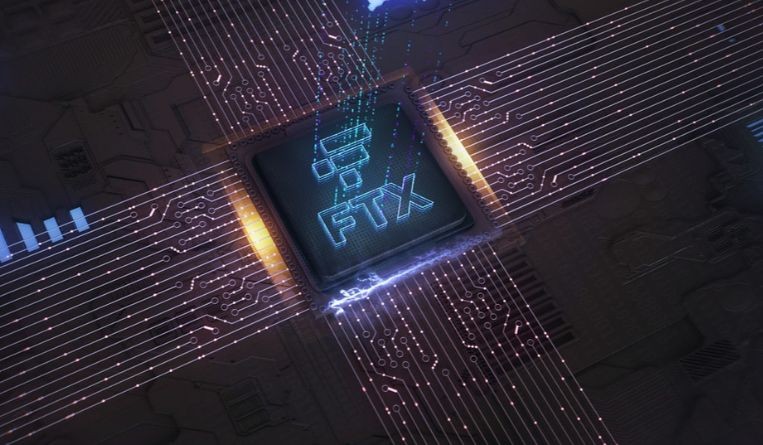Thailand updates cryptocurrency regulations
04 January 2023

Thailand now joins the growing number of nations looking to update its cryptocurrency regulations in the wake of the FTX debacle. And, like most of these nations, it plans to concentrate on protecting investors while tightening regulations for the sector.
The SEC representatives reportedly nodded on the failures of FTX, Three Arrows Capital, the TerraUSD, Celsius Network, and the local exchange, Zipmex, to justify such a decision. The Thai Securities and Exchange Commission (SEC) is reportedly preparing more stringent regulations on digital assets "to mirror the global market."
The regulators expressed worry over recent developments in cryptocurrency advertising, particularly the use of "finfluencers" to spread the message, which could have deceived the public into taking risks with their money. They considered the market for digital assets to be "vulnerable" and in need of regulation.
The SEC identified four key areas for its efforts to be concentrated on: cybersecurity, conflict of interest prevention, oversight of crypto advertising, and investor safety. It has established a working committee with representatives from both the public and commercial sectors to evaluate and draught the necessary revisions to current legislation.

“The implementation of strict rules and regulations in the cryptocurrency market indicates that the SEC in the upcoming year intends to focus more on investor protection than on promoting innovation in the cryptocurrency market, considering that the current cryptocurrency market in Thailand—and around the world—is highly volatile and is subject to significant price fluctuations, exposing investors to unforeseeable risks,” says Napassorn Lertussavavivat, an associate at Tilleke & Gibbins in Bangkok, Thailand. “The SEC appears to have the attitude that not all classes of Thai investors are sophisticated enough to trade coins and cryptocurrencies. After considering proposals to impose an age limit on cryptocurrency investors or require new investors to have a certain number of years of trading experiences, the SEC launched a new regulation in August requiring operators to provide new investors with sophistication testing or educational training. In addition, the SEC and the Bank of Thailand have warned the public not to use cryptocurrency as means of payment for goods or services.”
She adds, “The tightened rules would benefit investors—who need to be aware of the risks associated with investing in cryptocurrencies—by protecting them from fraud and price fluctuations. The aim of the SEC, however, is not only to prohibit any kind of misconducts in the market but also to encourage cryptocurrency operators in Thailand to provide the necessary information and protections to that investors need in order to make informed investment decisions. This will, eventually, increase investor confidence in the market. However, it is important for the SEC to consider the balance between protecting and promoting. Coupled with the bearish trends in the cryptocurrency market, overly strict regulations could stifle innovation and growth in the industry. The challenge for the SEC is ensuring that the impact from tightening the rules does not overpower the potential growth of the market.”
Restrictions on Advertisements
San Chaithiraphant, a senior associate at Tilleke & Gibbins in Bangkok, Thailand, says that the Thai SEC’s proposal of stricter regulation to protect investors in the crypto market may relate to IP in some specific ways. For instance, restrictions on advertisements may limit the ways a trademark owner can establish a mark’s distinctiveness through use. Also, if the restrictions govern the functions of cryptocurrency platforms, this may affect the value of some patents.

He says, “More generally, the emergence of information technology (IT) has consistently put IP regimes to the test. Various IT innovations, such as the internet, virtual reality, and artificial intelligence, have all raised many IP questions. Now, blockchain and cryptocurrency have brought up many similar questions in a new context. Applicable legal protection for IT-related intellectual properties is always an issue, and the challenge is compounded by the fact that IT-related intellectual properties usually require protection in several countries where local rules are not completely harmonized. Blockchain and cryptocurrency are run by computer code. Computer programs are internationally recognized as works of copyright, whereas their standing under patent laws differs across countries. Some jurisdictions bar computer programs from patentability; some allow registration of computer program patents but not without exception; and many others stand somewhere in between.”
As for trademark protection, which depends on the classes of goods and services for which marks are registered, care must be taken about the classes into which blockchain, cryptocurrency, and related services (like NFTs) may fall. A trademark’s distinctiveness, which may be inherent in the mark or acquired through use, also impacts the mark’s strength and registrability.
He says, :New technologies, including blockchain and cryptocurrency, do not affect these considerations of distinctiveness but serve to remind IP practitioners of their importance. A plan encompassing and adaptable to the differences and changes is key to securing optimal protection.”
Lertussavavivat adds, “The cryptocurrency market in Thailand has become increasingly popular in recent years, but with the fall of many leading cryptocurrency platforms, it is likely that the SEC will continue to take a proactive approach toward investor protection rather than working to promote innovation in the cryptocurrency market. With rapid evolution in cryptocurrency trends and its underlying technologies, the SEC will have to monitor the market and develop appropriate measures to protect investors.”
- Excel Dyquiangco




